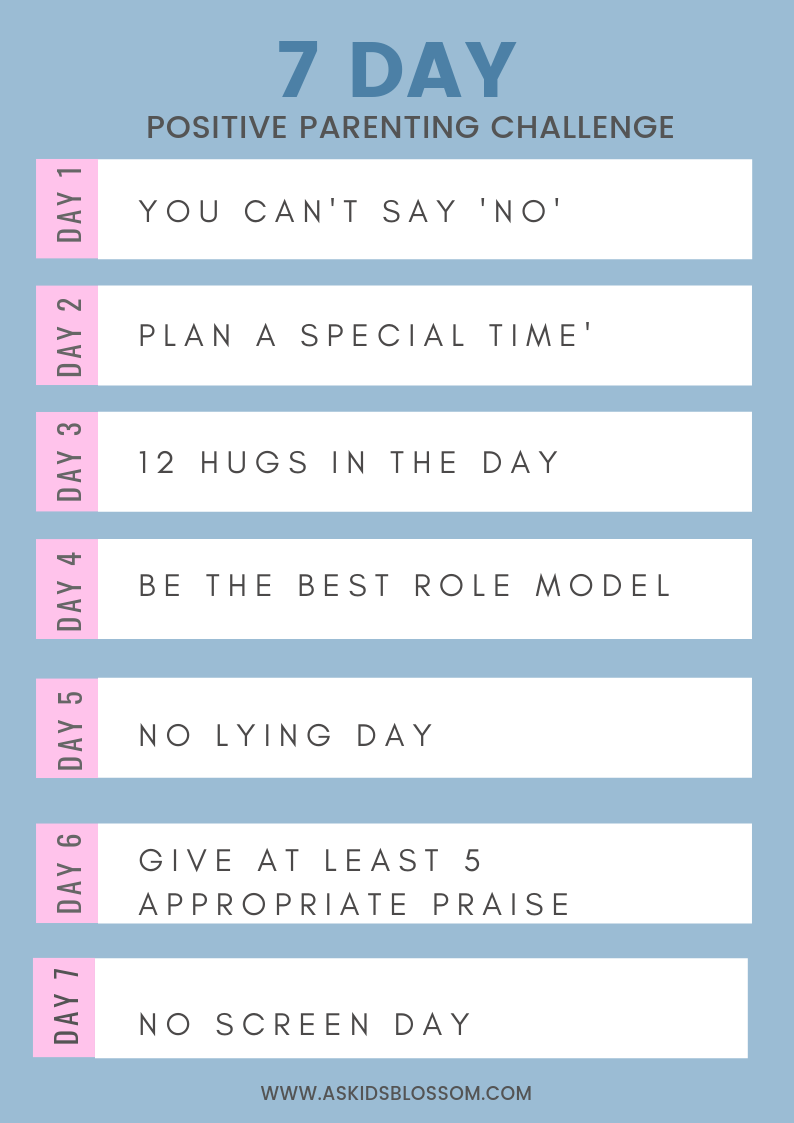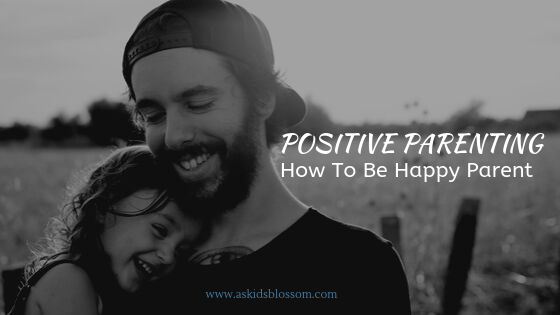Do you want to be a parent who is happier and more in control of the situation? Do you want kids who are confident, respectful and competent?
We all do.
That’s why positive parenting is becoming so popular. Everyone wants a better relationship with their children and a happier, peaceful home.
And it’s not so difficult if you ask me. It might require a little more time, but that’s going to pay off in like a month. And you would be spending less time negotiating and dealing with tantrums and meltdowns.
So how does it work?
What is Positive Parenting?
Positive parenting is a parenting philosophy introduced by Viennese psychiatrists, Alfred Adler and Rudolf Dreikurs.
This philosophy focuses on giving more respect to your children with the belief that our children are capable of exhibiting exemplary behavior if they are exposed to great behavior.

7 Steps to Positive Parenting
Let’s start positive parenting with these 7 steps:
Use better words
Dealing with kids can be overwhelming at times. All the crying, complaining, whining and throwing tantrums does affect our state of mind. We all want our kids to be happy, and when they aren’t it stresses us out.
And sometimes it gets very hard to control ourselves. We shout and say words we will be regretting later.
In positive parenting, we don’t use negative words like
No!
Stop!
Don’t do that!
We use better language.
So, the next time your little one complains or whines, use positive language. Here’s what I mean:
Instead of ‘Stop Crying!’, we say, ‘I know this is hard on you, but why don’t we ….’
Instead of ‘Stop Complaining’, we say, ‘Can you say that in a nicer voice’
Instead of ‘Stop Whining’, we say, ‘Let’s us all take a deep breath, and now tell me what happened’
Instead of ‘Don’t throw toys’, we say, ‘Let’s play with these toys together.’
Understand that your child isn’t going to listen instantly. Give him 5 minutes to vent himself.
This might be hard in the beginning, but do this for a week. Team up with your kid, and try to solve problems together!
Listen More
Positive parenting requires a bigger time investment from the parent. But that investment is going to save you a lot of energy, tears, and stress later in life.
If you aren’t going to listen to your child now, then can you really expect that he will talk to you once he enters those mute teenage ones.
Start communicating now and build a stronger bond for the trying times ahead. Plus, when you start listening to your child, it makes him feel understood and loved. He is less likely to feel anxious when big emotions take over.
A good idea is to allocate a special time each day just for listening and talking. Spend 15-20 minutes of your day just talking to your child. Give that time a special name.
It doesn’t matter what you talk about. It could be just making weird noises or listening to him make the most absurd stories. Just let your child think out aloud.
Say ‘I Love You’ with a hug
Virginia Satir very rightly says, “We need four hugs a day for survival. We need eight hugs a day for maintenance. We need twelve hugs a day for growth.”
Sneak in 12 hugs every day with your child. We do it when we wake up, after eating breakfast, while playing, during lunch and dinner, at bedtime and just in any other moment any one of us is feeling overwhelmed.
More Actions, and fewer Words
Our kids do a lot more copying than listening. Set a good example for your child to follow.
A child is more likely to be a reader when his parents read daily. The same goes for everything else. Do more and talk less. Be the person you want your child to be.
Be Honest
‘The grinch ate all the candy.’
‘The toy store is closed’
We all tell white lies to your children. Well, we shouldn’t.
When you are being honest with your child, you aren’t just a great role model, but you also build trust with your child. Your child will trust you infinitely more when they know their parent always tells the truth.
I know there will be times when you feel like lying is the easier way out, but honesty is a better way.
Use Positive Reinforcement
Positive reinforcement is an effective way to encourage positive behavior is your child. They are going to work harder towards being good when they see something for themselves in it.
But it doesn’t have to be a tangible item like candy or ice-cream. Some examples of good positive reinforcement are:
- Offering praise
- A hug
- A high-five
Limit Screen Time
Research shows that screen time affects your child’s brain development. And I don’t think we need research to tell us something we already know. I know from my own experience that when my kids start watching too much TV or spend hours playing games, we end up with more tantrums and meltdowns.
AHA recommends not more than 2 hours of screen time each day. Do this for yourself too. Remember more actions, fewer words.
Try to limit your screen exposure to less than 2 hours. No screen time during breakfast, lunch or dinner. Don’t look at your phones or tablets when you go out. Even at home, learn to switch off your devices when they are not in use. Turn off the wi-fi.
I always say parenting is a game you play for the long run. Keep going even when you face minor hurdles.
I hope this article will help you develop a better bond with your child. If you notice your child struggling and these strategies aren’t helping, I would love to help you determine your child’s individual needs. Please reach out to set up a free consultation. We are here to support you as you help your child blossom!
We are also doing a positive parenting challenge starting TOMORROW. Please join us in our FREE Facebook community to be a part of the challenge!

If you enjoyed reading 7 Steps to Positive Parenting, you might also enjoy reading:
10 Stress-Free Ways to Encourage Sharing in Kids
Emotional Regulation for Kids With Autism
